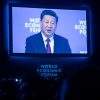
Having become President, Donald Trump the property developer is now proving to be a master of demolitions, if not of walls at least through issuing executive orders. With no time to waste he has set about fulfilling what he pledged, and thereby upset both regional and global balances in the process. This is partly a case of the US withdrawing into itself, partly the rejection of multilateral agreements and the prevailing world order and partly a change of priorities. But where will it end? Is the US under Donald Trump renouncing a leadership that has been vital to the world, with its resounding successes as well as its mistakes and excesses? The last time the US withdrew with disastrous consequences was when, in other circumstances and in defence of other values, Congress denied President Woodrow Wilson his wish to join the League of Nations, leaving the organisation hobbled and paving the way to what turned into the Second World War.
Trump’s ‘America First’ slogan may be interpreted either as ‘US, number one’ –in other words, let rise above or defy it– or ‘the US above all’ –in other words, the defence of its own national interests (as Trump perceives them) first and only then world order–. The two interpretations are not the same.
What is often referred to as the ‘liberal world order’ may be coming to an end, challenged by internal and external forces, as Robert Kagan argues. This world order, which came into being at the end of the Second World War, had already been gravely threatened by the emergence of new powers, principally China, which question it even though they largely participate in it while simultaneously creating parallel institutions and operating outside it when it suits them. There have been times when the US has done this too. Another factor is the crisis of multilateralism and international law, stemming from a variety of causes. But for the time being, although this order is in need of a updating, as Martin Wolf rightly points out, ‘reneging on past deals is sure to make the US seem an unreliable partner’.
It remains to be seen what impact the much-heralded rapprochement between Washington and Russia has (Obama’s ‘reset’ failed) on doing away with Islamic State (ISIS or Daesh) in Syria and Iraq, Trump’s security priority; ISIS is a hydra that will take on new guises and continue subdividing if it is fought solely on the battlefield.
One of Trump’s first decisions has been to pull out of the TPP, the Trans-Pacific Partnership. It shows to the world that deals with the US can be called into question, with geopolitical consequences. According to the influential Republican Senator John McCain, ‘it will send a troubling signal of American disengagement in the Asia-Pacific region at a time we can least afford it’. It is a disengagement that involves soft power more than the military variety, however. It is true that the TPP had already been torpedoed during the election campaign, having been rejected by both contenders. But with this step, coming on top of the shift in policy towards Taiwan, Washington loses credibility, to the benefit of China, whose President, Xi Jinping, deftly presented himself at the World Economic Forum in Davos as the great defender of globalisation and the trade order (from which his country has been able to reap so much).
In terms of Mexico, America’s third-largest trading partner (after China and Canada and ahead of Japan and Germany), Trump’s stance –a wall and tariffs– is creating not only a bilateral problem, but one that could destabilise its southern neighbour politically, economically and socially, something that will reverberate throughout the US and Latin America.
It remains to be seen whether the criticisms of the UN, the determination to renegotiate the North American Free Trade Agreement (NAFTA), the description of NATO as ‘obsolete’, the doubt cast on America’s European defence guarantee, the dismissal of the EU –Trump described Brexit as a ‘wonderful thing’ and in the presence of Theresa May called the EU a bureaucratic and inward-looking ‘consortium’– and the rejection of the Paris climate-change agreement are merely rhetoric or will translate into deeds. As Abby Phillip and Ashley Parker point out, the things that Trump says and tweets need to be taken not only seriously but literally too.
Theresa May, the first European leader to meet Trump, having asked him to avoid the ‘eclipse of the West’, tried to convince him not to jeopardise NATO. It may be no bad thing if Europeans cease to view the US as a paternal figure, and emancipate themselves, relying too on a EU that the British Premier defended in Washington, Brexit notwithstanding.
Following the rift caused, at least between continental Europe and the US, by George W. Bush and his invasion of Iraq, there was a major outbreak of anti-Americanism in many societies that faded away with Obama’s arrival in the White House, closer as he was to European values. There may be a resurgence of such sentiment with Trump, not least due to Europe’s rejection of the torture of detainees held on charges of terrorism, something the new President now defends. It was values such as these that Angela Merkel referred to in her letter of congratulations to the winner of the presidential election and also in her public criticisms, alongside François Hollande and May, of the anti-immigration measures imposed by Trump on people from seven Muslim countries.
The US continues being the world’s foremost power in military, economic, technological and cultural terms. It remains an ‘indispensable power’, although it is now no longer as capable of leading as it was. This was well understood by Obama, who made his own foreign policy errors. A new spate of anti-Americanism, combined with a de-globalisation that he himself stokes (‘buy American, hire American’, he urged in his inaugural address, coming on top of threats of punitive tariffs against Mexico and China, although he will have to stick to the rules of the World Trade Organisation, unless he pulls out of that too), and the remilitarisation of foreign policy are a volatile cocktail. Criticisms being aimed at the fledgling Trump Administration’s foreign –and domestic– policies are starting to proliferate not only beyond US borders, but also within Republican ranks, and even among high-ranking officials at the State Department who have handed in their resignation.
Trump has not yet exhibited an alternative vision of a new international order, of a new international society. What he is proposing for now is not this, but a vision that is essentially domestic. It presages a world that is more chaotic and dangerous.


